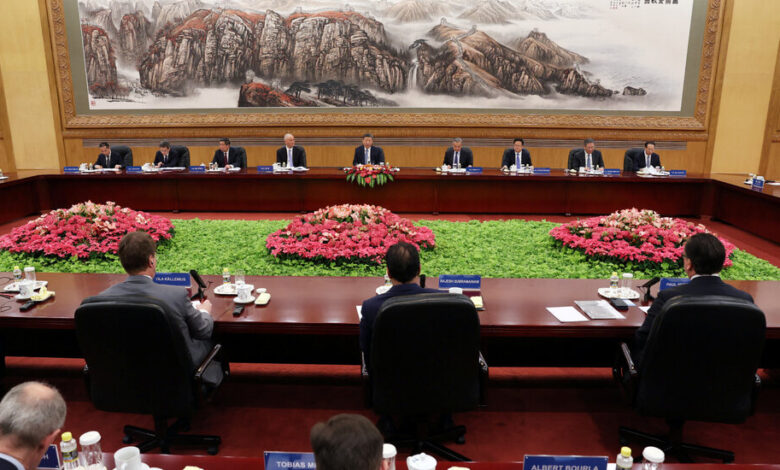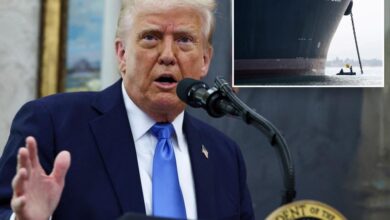Xi Jinping Meets Global Business Leaders Amid Trade Tensions

During a meeting at the Great Hall of the People in Beijing, Xi Jinping, China’s top leader, engaged with executives from various foreign companies like Saudi Aramco, BMW, Toyota Motor, FedEx, and more. This meeting aimed to boost foreign investment in China amidst escalating trade tensions with the United States.
This was not the first time Mr. Xi met with multinational executives to encourage investment in China. With sluggish economic growth and tightening national security laws, global companies have been hesitant to make significant investments in the country.
Over 40 executives attended the meeting, including prominent figures from companies like Saudi Aramco, BMW, Toyota, Mercedes-Benz, Samsung, FedEx, Maersk, Hitachi, SK Hynix, Pfizer, and Sanofi. Mr. Xi emphasized the importance of maintaining global supply chain stability and highlighted the vast potential for investors in China.
According to Chinese state media, fresh foreign investment in China has declined in recent years, except for the German automotive industry, which views China as a crucial market to compete with domestic automakers. German automakers have been increasing their investments in China, with BMW collaborating with Alibaba on artificial intelligence technology for their vehicles.
Volkswagen’s new electric car factory in central China and their stake in Xpeng, a Chinese automaker, demonstrate a commitment to the Chinese market. The meeting with Mr. Xi followed the China Development Forum, where global executives like Tim Cook and Stephen Schwarzman discussed economic matters.
Mr. Källenius of Mercedes-Benz highlighted their investments in Chinese engineering, including a significant investment in a long-wheelbase electric car. Despite a decrease in foreign investment in China, the country still attracted a substantial amount of foreign capital in the past year.
Tensions between the US and China have deterred American companies from investing in China, while tightening national security laws have raised concerns among investors. Some research firms have pulled out of China, leaving multinational companies without crucial support for assessing potential investments.
Foreign businesses in China also face challenges due to overcapacity, declining prices, and a challenging domestic market. These factors limit the profitability of new investments in the country.
Siyi Zhao and Berry Wang contributed research.





